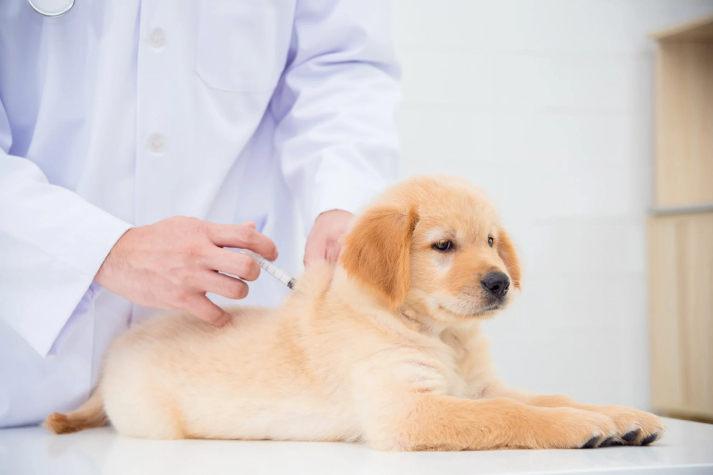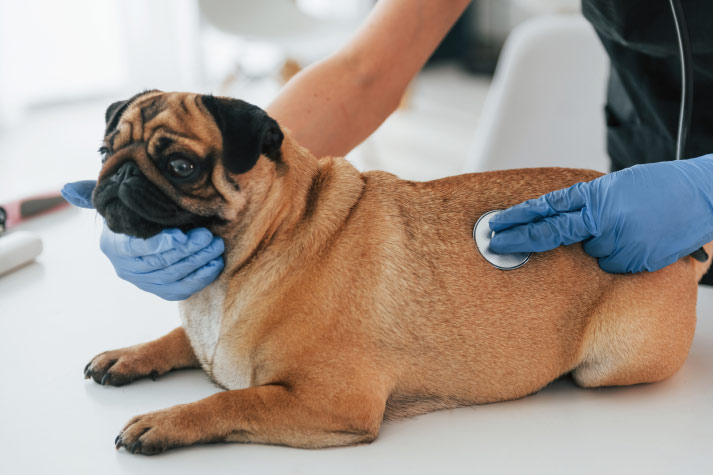
07 Nov
Why is it Crucial to Vaccinate Your Pet?
Vaccines are as important for our pets as they are for us. They offer simple, effective, safe, and cost-efficient protection against diseases. They use an organism’s natural immune system to build a certain level of immunity against diseases, as well as help the immune system to remember diseases, so it can prevent any re-infections in the future. Vaccines are a simple, efficient, effective, and cost-efficient way to protect yourself against infections, and depending upon the type of vaccine, their protection can last for years, sometimes even over a decade. A vaccine is important because instead of acting like a cure, it behaves as prevention against diseases. Your pet needs and deserves the same level of protection against diseases as you, which is why vaccinating them is so important. Basic/core vaccines are essential, as they prevent severe diseases, and reduce the risk of exposure and the risk of spread of disease from dogs to dogs/humans. They are also mandatory if you ever wish to move to a foreign country, as most countries require pets to have their basic vaccinations completed before import. These are as follows: Basic Vaccinations for Cats As is the case with dogs, basic/core vaccines for your cat are essential and crucial in making sure they grow up healthy and disease-free. While you should always discuss the mandatory vaccinations for your cat with your vet, the following are commonly recommended as basic vaccinations for your cat. The simple answer to why your pet should be vaccinated, is that vaccination provides them with protection against contagious and potentially fatal diseases. While it is sad to think about, the reality is that a vast majority of diseases your pet can catch if they are not vaccinated are fatal. Even if they recover with a stroke of luck, the repercussions of an infection can be life-long, impeding their ability to live normally and burdening you with costly healthcare bills. The first question most pet parents have is, when should you vaccinate your pet? Normally, pets are vaccinated when they are young, roughly once they are at least eight weeks of age. Since some pets might have to be vaccinated with their “first” dose later in life, this is a common question. This is also applicable for fully-grown pets whose vaccination history you’re unsure about, or for those pets who have missed subsequent booster doses of a vaccine after initially being administered. Consult your vet and plan a vaccination schedule that best suits your pet’s needs. Elderly pets are just as likely to catch diseases as their younger counterparts. If anything, they are more at risk; the inevitable ageing process every living organism undergoes means strength and immunity naturally deteriorate over time. Therefore, it is important to maintain a regular vaccination schedule to prevent any illnesses in your senior pet. If your pet is in their advanced age, or if you’ve sheltered a senior pet and are unsure about their immunizations, get in touch with your vet so they can outline a course for them. While it is always advised to bear in mind the date your pet is due for a booster, one can get caught up with daily life and forget such a detail. If you do happen to forget your pet’s booster dose for a vaccine, don’t fret. Consult your vet as soon as possible, and depending on your circumstance and situation, they can prescribe the best course of action. If it’s been a sizeable amount of time since their last shot, the vet will probably prescribe a fresh dose, restarting with the first shot. Again, this depends on your situation, so consult your vet whenever the opportunity arises. While varying from one individual animal to the next, here’s the average schedule for dog vaccinations: Cat vaccinations vary a little more than those of a dog. This is due to a few reasons; such as whether the cat has had any serious medical conditions from birth, or whether the cat in question resides exclusively indoors or roams outside as well. here is an estimated schedule for an indoor house cat:What are Vaccines?
Basic Vaccinations for Dogs
• Canine Parvovirus
Non-Core Vaccines for Your Dog
When to Vaccinate Your Pet?
Do Elderly Pets Need to be Vaccinated Too?
What to do if you miss a booster dose
Basic Vaccination Schedule for Dogs
Basic Vaccination Schedule for Cats






AUTHOR’S BIO
Carry My Pet
Passionate pet enthusiasts and globetrotters, dedicated to easing furry friends' journeys worldwide. Penning tales of compassion at CarryMyPet, where every relocation is a tail-wagging adventure.